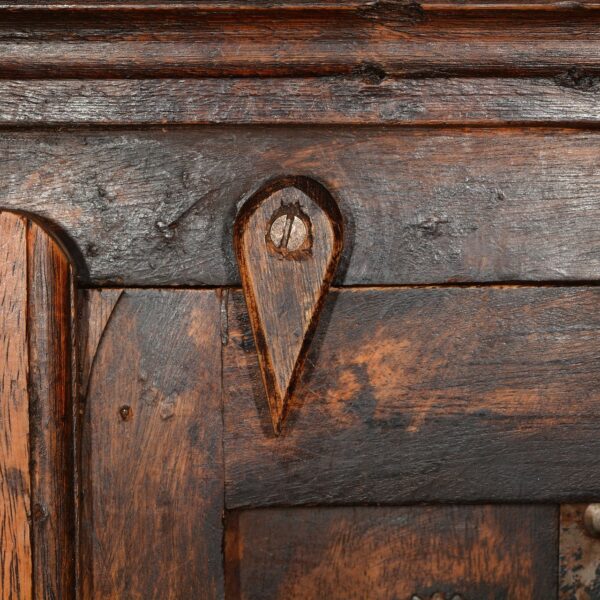Bartenders must follow all state and federal laws when serving alcoholic beverages to patrons. The laws require all patrons to be at least 21 years of age to consume and purchase alcohol. Laws are also in place to prevent bartenders and servers from continuing to serve individuals that show clear signs of intoxication. Reviewing the legalities that bartenders face shows the servers how one mistake can ruin their lives.
What are Dram Shop Laws and How Do They Affect Bartenders?
Dram shop laws apply to bars, nightclubs, restaurants, and any other establishments that serve or sell alcoholic beverages. Under the laws, there is a possibility that the establishment and the server can face serious legal penalties if they continue to serve individuals who are clearly intoxicated.
The purpose of these laws is to hold individuals accountable for contributing to accidents that involve drunk drivers that lead to serious injuries or fatalities that could have been avoided. Any party that serves or sells alcoholic beverages to a customer that is already intoxicated could be liable for the actions of the intoxicated individual once the individual leaves the establishment. Business owners can review insurance policies that provide better protection against dram shop laws by visiting T.S. Peck right now.
Investigating an Auto Accident Involving a DUI
Each DUI-related accident in which the drunk driver caused a fatality requires a full investigation. The blood-alcohol content reading acquired during the driver’s arrest will determine if they are accused of a regulatory DUI or aggravated DUI. Any evidence showing that a bartender contributed to a higher-than-average level of intoxication can leave the service provider at risk of penalties. Any witnesses that saw the driver leaving a nightclub, bar, or restaurant when he or she was clearly intoxicated can pinpoint the liability to the bartender.
Under dram shop laws, all the prosecutor or civil attorney must do is prove that the bartender served alcohol to the individual when it was evident the patron was already intoxicated. The laws require all bartenders and servers to deny access to alcohol once a patron is obviously intoxicated. The right to refuse is available to any establishment that serves alcohol or sells packaged alcoholic beverages to the public.
There are laws and policies in place to protect businesses and bartenders who refuse to serve or sell alcohol to drunk patrons or customers. Typically, establishments have their own guidelines for handling customers that are intoxicated. Some guidelines recommend asking the patron to take a cab if they have been drinking on-site or calling the police if the customer becomes a threat to the server. The right to refuse protects bartenders from becoming the defendant in a lawsuit and could eliminate their liability.
The Age of the Patron
The age of the patron is a factor that is assessed whenever there is evidence of underage drinking and driving. A more conclusive investigation could occur to find what bartender served a minor in the establishment. Alcoholic Beverage Control agencies can charge any bartender that served a minor with contributing to the delinquency of a minor. The charge can include a fine of around $1,000 and a jail sentence of up to one year.
All establishments must follow a common rule of thumb and request identification from any patrons who do not look at least 40 years of age. The law in most states requires all individuals to be at least 21 years old to purchase and consume alcohol. Selling alcoholic beverages to any party under the age of 21 could present the bartender with a felony criminal charge.
Establishing Who Served the Driver
Establishing what bartender served the drunk driver pinpoints who is at fault in a drunk driving accident. Yes, the drunk driver will be held accountable for making the decision to drive while they are intoxicated. However, if the driver says they were drinking at a specific bar, nightclub, or restaurant, investigators can get a warrant to evaluate the surveillance cameras in the business and find out who served the driver. If it is determined that the bartender did serve the driver while he or she was already intoxicated, the bartender faces the same liabilities as the driver.
Civil Lawsuits Connected to Dram Shop Laws
Civil lawsuits are often filed once dram shop laws are established in connection with an auto accident. If the victim dies as a result of their accident injuries, their family can file a wrongful death lawsuit against the driver and all parties that contributed to the accident. Bartenders that overserved an intoxicated driver can face part of the liability along with the business that employs them.
The total monetary damages in a wrongful death lawsuit start with the full medical and funeral costs for the victim. If the victim had children or a spouse that depended on them for financial support, all parties identified in the lawsuit could be made to pay the surviving children or spouse the lifetime earnings of the victim. When this is calculated, it begins with the wages that the deceased accumulated each pay period. Next, the court considers the victim’s life expectancy based on their current age and health.
In addition to lifetime earnings and expenses, the family could also receive a tort award for pain and suffering. While the bartender won’t face the entire brunt of these costs alone, the financial losses is profound. All the family must prove is that the bartender overserved the intoxicated driver.
Whilst we hope that you never need to research the services of an attorney, you can do so by searching online for ‘Oakland Wrongful Death Attorney‘ and similar.
Criminal Charges for Bartenders
Criminal charges are possible for bartenders if they serve minors and if they serve anyone who is already drunk and an accident happens. The severity of the victim’s injuries could play a significant role in what charges are applied. Dram shop laws allow the court to apply criminal charges based on the bartender’s role in contributing to a fatality.
Bartenders face a plethora of legalities each time they serve a drink to a patron. It is the responsibility of the bartender to control how much alcohol is served to their customers and avoid overserving anyone who is clearly intoxicated. Reviewing dram shop laws prepares the bartenders for possible legal troubles they could face if they make a mistake.
Image Credits: Adam Jaime




Like this article? Share with your friends!